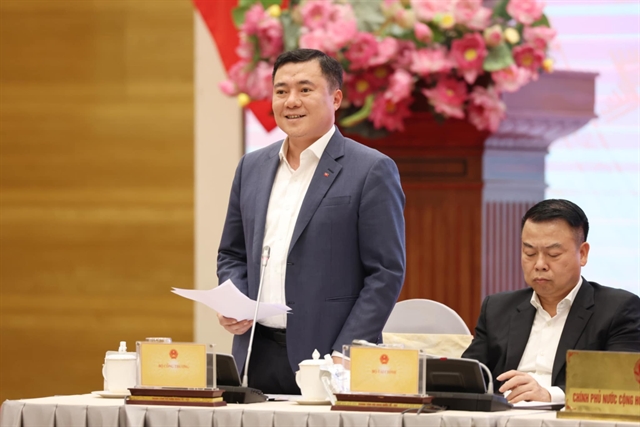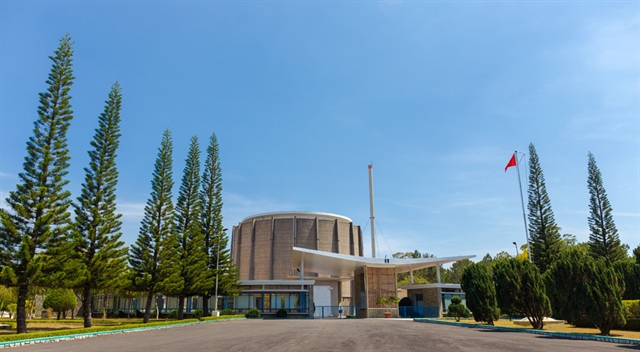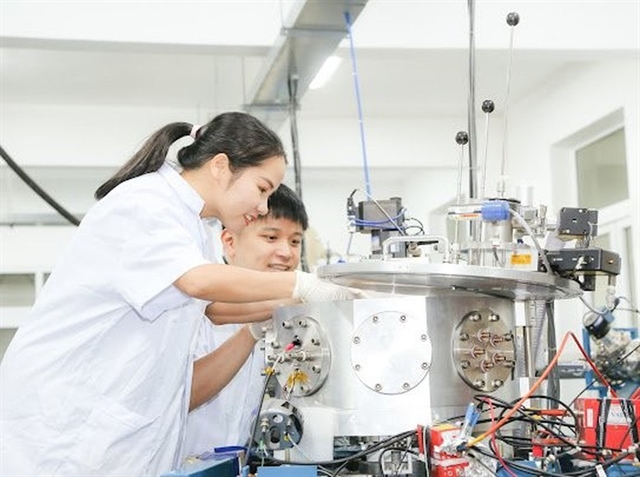 Society
Society

 |
| The Nuclear Research Institute under the Vietnam Atomic Energy Institute – Ministry of Science and Technology in Đà Lạt City. — Photo baochinhphu.vn |
HÀ NỘI — As Việt Nam looks to revive its Ninh Thuận nuclear power project, developing a skilled workforce, building a strong legal framework, and bolstering nuclear safety and technology will become critical priorities, experts said.
Nuclear power is a sector that demands very specific advanced scientific and technical expertise, requiring highly skilled human resources at every stage, from design and technology to infrastructure construction, operation and regulatory management.
These resources are not only critical to the success of projects but also essentiual for ensuring long-term operational safety and efficiency.
A study by the World Nuclear Association reveals that operating a nuclear reactor at a power plant requires between 400 and 700 full-time personnel, while it takes approximately 12 to 15 years to prepare a nuclear power plant for operation.
Now is a critical period for Việt Nam to prepare its human resources, establish a legal framework and enhance its capacity in nuclear technology and safety.
Associate Professor Nguyễn Xuân Hải, from the Nuclear Research Institute under the Việt Nam Atomic Energy Institute, said that between 2010 and 2015, Việt Nam sent more than 400 students and engineers to Russia, Japan and other countries for training and internships to support the Ninh Thuận nuclear power project.
However, since the project was suspended in November 2016, most of these individuals have shifted to other fields.
Technological expertise remains a significant challenge, particularly in critical areas such as nuclear reactors, nuclear materials and fuels and accelerators. These fields often lack trained professionals due to the confidentiality of scientific and technological policies.
Even when training is available, many specialists opt to remain abroad. This shortage of expertise is a key obstacle hindering the development of Việt Nam's nuclear energy sector.
Policies to attract young talent
Dr Trần Chí Thành, Director of the Việt Nam Atomic Energy Institute (VINATOM), said that human resources will be a decisive factor in restarting the Ninh Thuận project and other major energy projects in Việt Nam.
Despite the demand, the nuclear energy sector struggles to attract talent due to the complexity of the field, stringent requirements and relatively low income.
These challenges highlight the urgent need for training and retraining.
Dr Trần noted that the government has previously launched programmes to train nuclear professionals through domestic universities and international partnerships. Hundreds of students and staff were trained in Russia and received short-term training in Japan, France, and Hungary, forming an initial pool of specialists.
For example, Japan trained 32 core staff members from Vietnam Electricity (EVN) for the Ninh Thuận 2 plant. These individuals could have become leading experts in the construction and operation of Việt Nam’s nuclear power plants had the project not been suspended.
 |
| Students of nuclear engineering technology, at Hanoi University of Science. 4o mini |
Dr Trần proposed that Việt Nam focus not only on new training but also on mechanisms to attract previously-trained professionals back into the sector. He suggested offering scholarships to incentivise talented students to pursue nuclear studies.
“When we restart the project, we must consolidate the existing workforce, provide further training and classify candidates for both long- and short-term training,” he told baochinhphu.vn.
Establishing a State Steering Committee staffed by proficient nuclear energy managers will also be essential.
Dr Trần further stressed the need to build a team of nuclear regulatory experts with practical experience and technical proficiency. These experts should gain hands-on experience at foreign nuclear plants to deepen their understanding of safety issues, be ready to anticipate risks and establish regulations ensuring operational safety.
To cultivate top nuclear energy experts, Việt Nam requires a national research programme addressing the challenges of nuclear power. A comprehensive training plan across various levels must also be developed.
Currently, the Việt Nam Atomic Energy Institute is building a research team specialising in technology and nuclear safety analysis, along with related fields. This team is expected to evolve into leading experts who will contribute significantly to constructing the Ninh Thuận nuclear power plant.
Strengthening international cooperation
International collaboration is crucial for Việt Nam’s nuclear power development, particularly in human resources development.
On December 20, in Japan, Minister of Industry and Trade Nguyễn Hồng Diên met with Japanese enterprises and universities to promote cooperation in nuclear power.
During the meeting, Việt Nam Electricity University and Nagaoka University of Technology signed a Memorandum of Understanding on collaboration to develop nuclear power human resources.
This partnership is expected to strengthen Việt Nam-Japan cooperation in training personnel for the Ninh Thuận project.
Associate Professor Đinh Văn Châu, Rector of Việt Nam Electricity University, said that despite technological advancements, the lack of expertise, safety awareness and professional ethics among operators poses risks.
His university has proposed partnerships with major corporations like Mitsubishi, Hitachi and JINED to create targeted training programmes.
Japanese corporations have expressed their readiness to transfer knowledge and expertise to Việt Nam.
Similarly, the Russian Ambassador to Việt Nam, G.S. Bezdetko reaffirmed the country's willingness to cooperate on the Ninh Thuận project.
Over 300 Vietnamese professionals have bee trained in nuclear power in Russia, laying a foundation for future collaboration.
Experts agree that a strong and capable workforce is vital for ensuring the safety and efficiency of nuclear power plant construction and operation.
A successful human resource training programme requires the concerted efforts of the Party, the State and the nuclear sector to attract and retain talent.
If implemented effectively, the revival of the Ninh Thuận nuclear power project will not only address Việt Nam's energy challenges, but also elevate its position on the global energy map.
This is a pivotal moment for Việt Nam to demonstrate its commitment to sustainable energy development and international collaboration, using domestic and foreign resources to realise its vision for nuclear energy. — VNS




